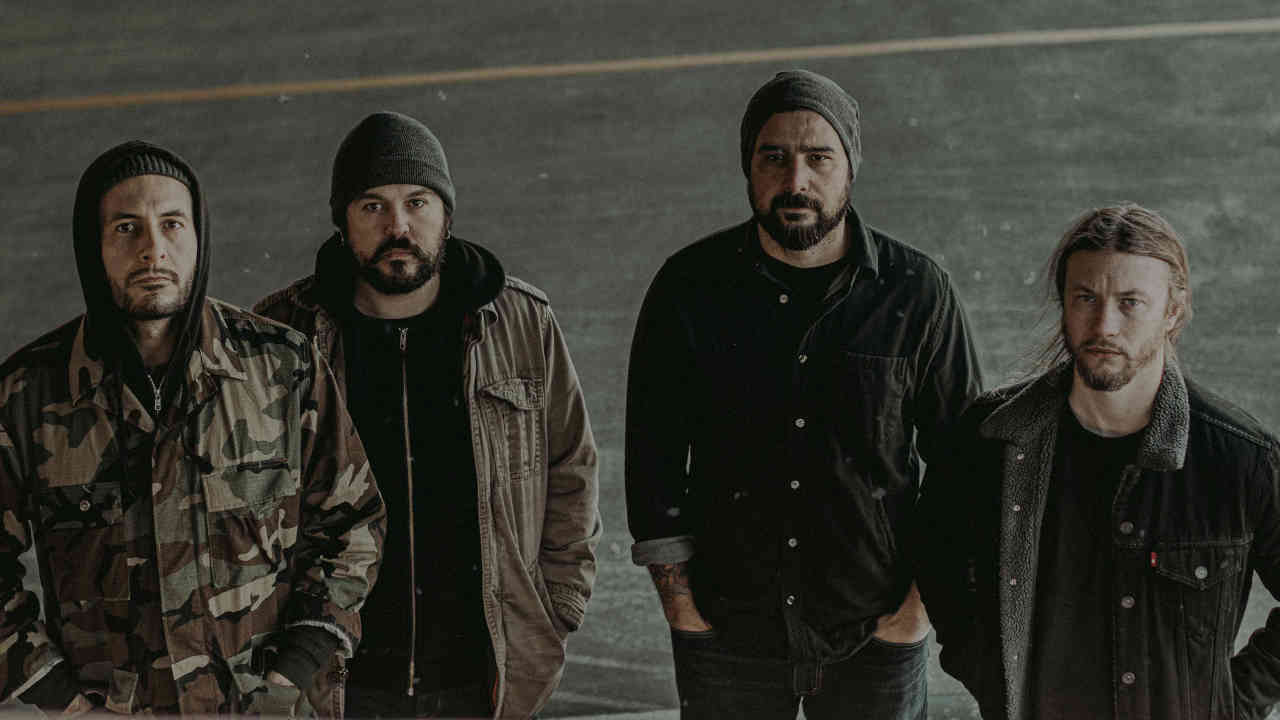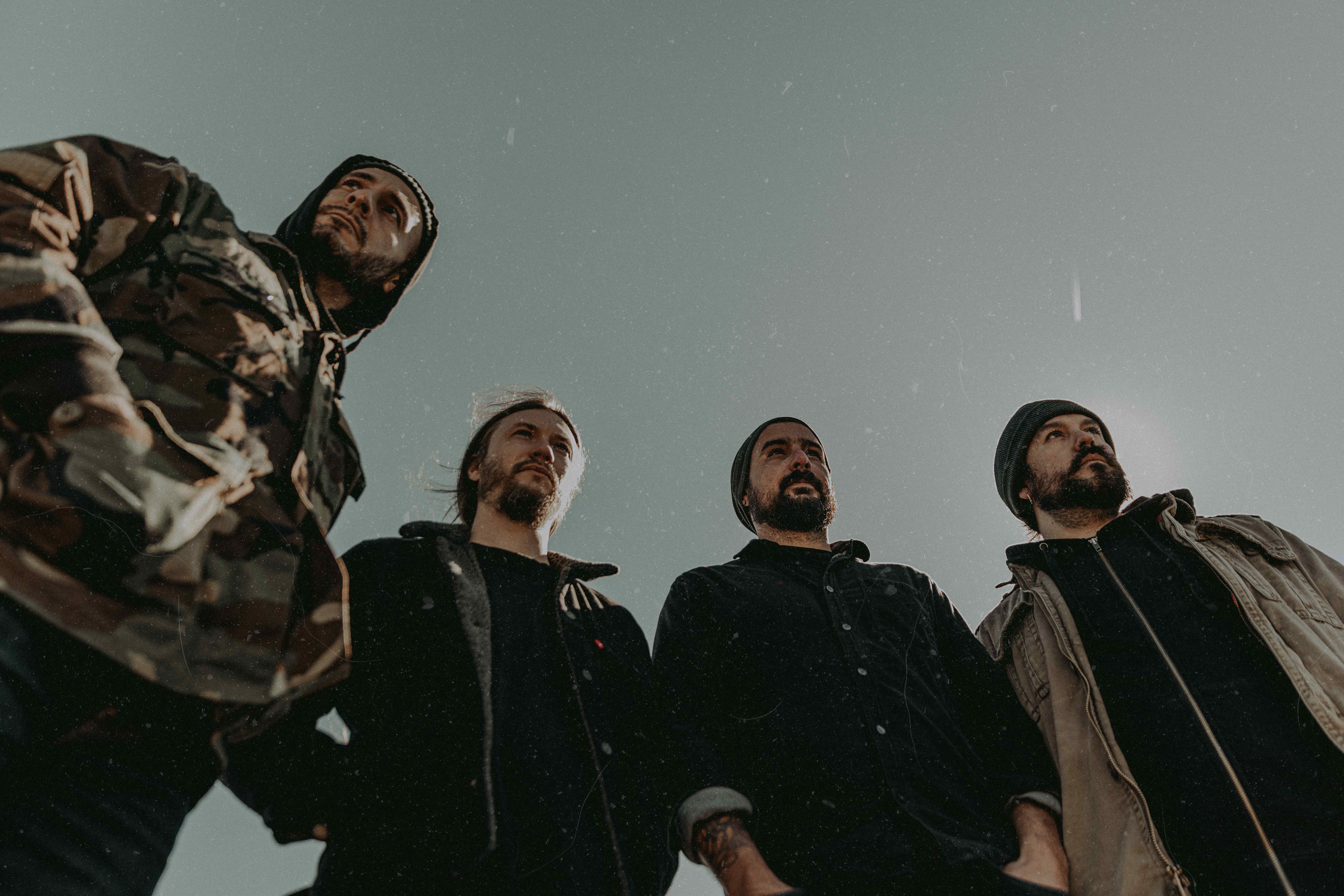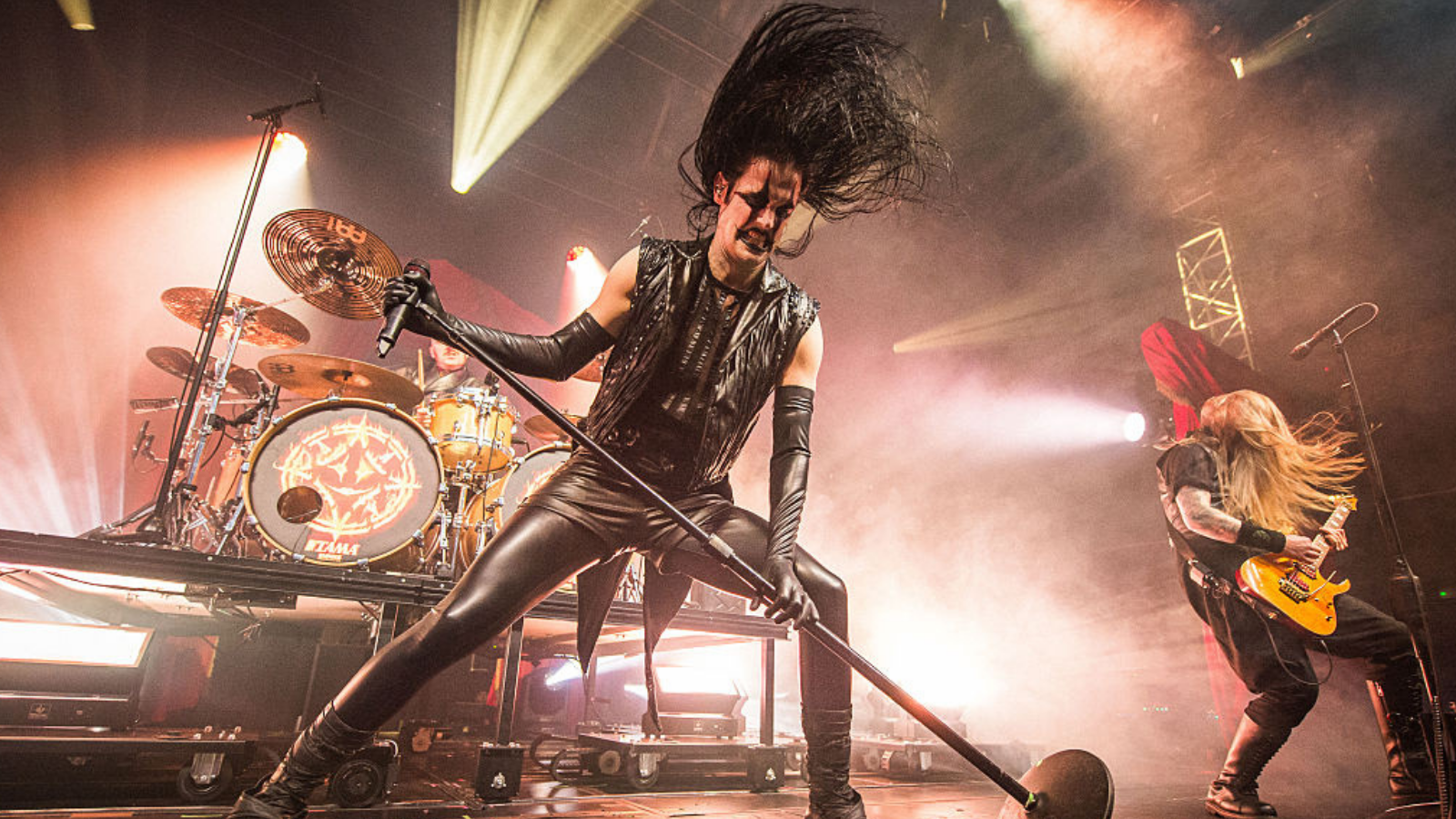This metal band lost $20,000 on a recent tour. Is the entire future of live music in jeopardy?
US metallers Irist incurred huge loses on their recent tour. And they say rising costs are only going to make things worse for bands – and fans

Select the newsletters you’d like to receive. Then, add your email to sign up.
You are now subscribed
Your newsletter sign-up was successful
Want to add more newsletters?

Every Friday
Louder
Louder’s weekly newsletter is jam-packed with the team’s personal highlights from the last seven days, including features, breaking news, reviews and tons of juicy exclusives from the world of alternative music.

Every Friday
Classic Rock
The Classic Rock newsletter is an essential read for the discerning rock fan. Every week we bring you the news, reviews and the very best features and interviews from our extensive archive. Written by rock fans for rock fans.

Every Friday
Metal Hammer
For the last four decades Metal Hammer has been the world’s greatest metal magazine. Created by metalheads for metalheads, ‘Hammer takes you behind the scenes, closer to the action, and nearer to the bands that you love the most.

Every Friday
Prog
The Prog newsletter brings you the very best of Prog Magazine and our website, every Friday. We'll deliver you the very latest news from the Prog universe, informative features and archive material from Prog’s impressive vault.
When Irist bassist Bruno Segovia joins Metal Hammer on Zoom, he jokes that his band’s been called metal’s unluckiest newcomers in recent times. It’s hard to disagree. The post-metal five-piece released their debut album Order Of The Mind just days after the world entered lockdown in 2020. Then, once live music returned, they played across Europe with Pallbearer and Elder – only to return home more than $20,000 poorer.
In November, Irist set up a GoFundMe to try and reclaim their expenses. With Anthrax and Devin Townsend having recently spoken out on how unsustainable touring’s become post-pandemic, they won’t be the last band to do that. Below, Bruno and guitarist Pablo Davila talk about the crushingly high costs of playing shows in the 2020s, and what the future of live music looks like if current trends continue.

You’ve started a GoFundMe to help the band “recover from a heavy financial loss” caused by touring in Europe. What happened?
Bruno: “Once we were out there, there was a perfect storm of things: gas prices went up exponentially and merch sales were a third of what was expected. We were kind of expecting to lose some money, but nowhere near what actually happened. We were expecting to lose maybe a couple grand, not even counting our tickets to get over there.”
How much money did you lose?
Bruno: “About $20,000, not including flights. That was between merch bills, all the lodging, gas, van rental and everything. Gas ended up being €30 to €50 a day more than expected. We were told you could find cheap hotel rooms for, like, €60 a night and our average ended up being €120 to €150.”
Pablo: “If you take into consideration that we were out there for six weeks, it ended up being an incremental thing. It wasn’t just the price, but also not making anywhere near what we had projected to make on merch.”
Sign up below to get the latest from Metal Hammer, plus exclusive special offers, direct to your inbox!
How much were you expecting to make off merch and how much did you actually make?
Bruno: “The projection was €300 to €500 a night and the average ended up being €100-and-something. There were some shows that did better than others: Damnation Festival [in Manchester] was phenomenal but that was the last show.”

When did you realise you’d lose much more than expected?
Pablo: “Three weeks in, so about halfway through.”
Bruno: “It was rough. We sat down amongst ourselves before calling management and it was like, ‘Fuck, we might have to go home! We just don’t have money to pay for hotels or gas.’ Luckily, we did get some help: we were able to get advances a little faster. Looking at our numbers, we were like, ‘Well, we’re fucked already. If we go home now, our bills will still be roughly the same.’ We could have saved a couple of grand, but not enough to make a huge difference.”
Pablo: “Most of the expenses were upfront, so the damage had already been done.”
How much were you paid per show?
Bruno: “Maybe €200 a night on average. We weren’t going to get rich, but it was enough to cover the next day or have gas, or our next hotel. Being able to get that in advance really helped us not run out of money.”
Did you talk to the other bands on the tour? Did they offer any advice?
Pablo: “Everybody we mentioned it to was very supportive and had been through some version of that pre-COVID. Everybody’s advice was just to do what was best for us and not fuck ourselves up in the long run. It’s not a foreign thing to people that are doing it all the time. Some version of this is just something that happens more and more often from what we gather.”
The fact that this is becoming more and more frequent, how bad is that for the future of live music as a whole?
Bruno: “I don’t know if our experience is the norm or will be the norm, but if that’s what’s coming, then there just won’t be any up-and-coming bands able to go out that way. Who can afford that? We definitely can’t. I talked with Rodrigo [Carvalho, Irist’s singer] during COVID and he mentioned the possibility of bands becoming more of a tourist thing: people go to where the bands are, or bands are limited to more regional tours.”
Was it a hard decision to set up a GoFundMe?
Pablo: “Yeah, mostly because of the perception of it. As common of a narrative as this is among touring musicians, there’s still a strong sense of, ‘Just suck it up.’ You worry about that kind of stuff, so there was a big debate before we decided to pull the trigger on it. Ultimately, we just trusted that this would be an ongoing conversation on social media and that other people will speak out about it: it’s only a matter of time.”
How long do you see the world of touring, as it is now, lasting?
Pablo: “I think something we’ve all asked before is, ‘What will the landscape look like once a lot of the legacy bands are out of the picture?’ It’s really hard to say because it’s changing all the time and, talking to people that have been in it much longer than we have, it’s changing for the worse. I don’t think bands will ever manage to be that big again. They came up when there was actual money to be made in the music industry: when MTV played music.”
What changes need to be made to make touring more sustainable?
Bruno: “It’s out of the reach of even the music industry. The cost of living has gone up exponentially, I think everywhere in the world. Everything is just way more expensive and, at least here in the States, wages are not going up in the same manner.”
What does the future look like for Irist?
Bruno: “We’re definitely gonna keep going, but I don’t think we’ll be touring again anytime soon. It’s gonna take a while to bounce back: I had to quit my job and I don’t have a degree in anything. I’ve worked in manufacturing for 18 years and it’s not one of those jobs where you can be like, ‘Hey, I need to be gone for a month.’ I had to quit.”
You quit a full-time job for a tour that lost you $20,000?!
Bruno: “Twice. When we got signed and went to record our first album in the UK, I was a warehouse supervisor. I worked there for 10 years, told them I needed a month off and they said no. I said, ‘Thank you very much. I quit.’ Then we came back and the pandemic happened. I found another job, worked there for a couple years, then I had to quit to go on this tour. It’s become a trend in our camp at this point.”
Pablo: “I’ve quit [full-time jobs] a couple of times because of plans to tour or go record. I’m a nurse, so I can come back and find something else but it’s still not easy. It’s easy to see now how doing that is something that will get progressively worse.”
Has all this affected your relationship with the music you make?
Pablo: “We’ve all decided to take a few weeks or even a few months to step away completely. We’re going to distance ourselves from the band and any creative endeavour for a while. But I also sense that, in due time, there will be this urge to get back at it and write and record. We don’t want to, hypothetically, tour in mid-2023 and end up in a similar situation, so we’re aiming for the slow and steady.”
Bruno: “We’re definitely not gonna do another six-week tour. We’ve all agreed that six weeks is a little too much.”
Irist’s GoFundMe campaign can be found here.

Louder’s resident Gojira obsessive was still at uni when he joined the team in 2017. Since then, Matt’s become a regular in Metal Hammer and Prog, at his happiest when interviewing the most forward-thinking artists heavy music can muster. He’s got bylines in The Guardian, The Telegraph, The Independent, NME and many others, too. When he’s not writing, you’ll probably find him skydiving, scuba diving or coasteering.
